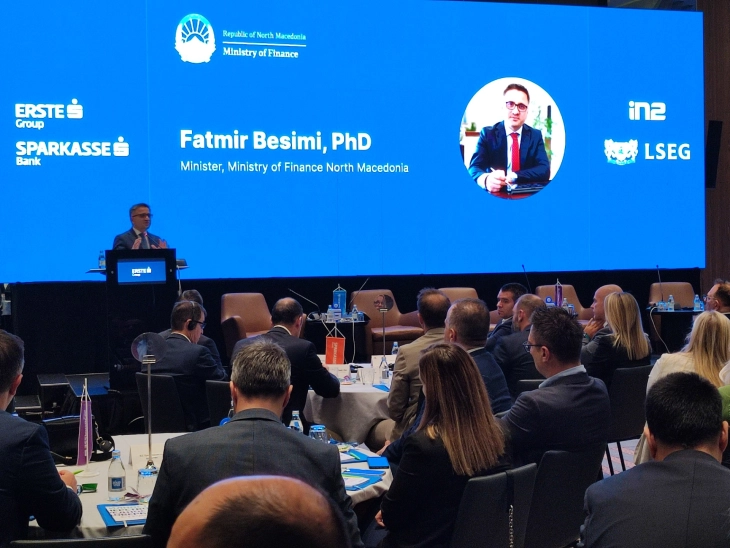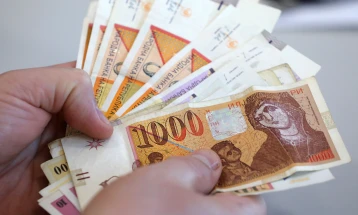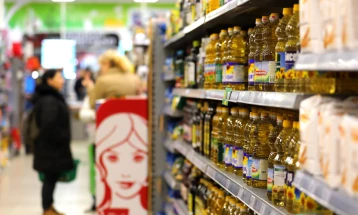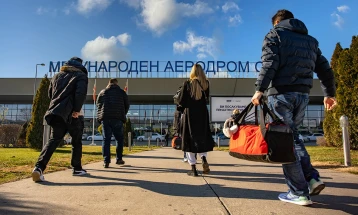‘Erste Investors’ Breakfast’ held in Skopje, focus on macroeconomic stability, sustainable growth, reducing inflation
- At this year's "Erste Investors' Breakfast" in Skopje, representatives of the national financial institutions spoke about maintaining macroeconomic stability; sustainable growth through the appropriate policies and reforms; and further reduction of inflation through cautious policies due to the continued and new crises.
- Post By Angel Dimoski
- 13:30, 25 October, 2023

Skopje, 25 October 2023 (MIA) – At this year's "Erste Investors' Breakfast" in Skopje, representatives of the national financial institutions spoke about maintaining macroeconomic stability; sustainable growth through the appropriate policies and reforms; and further reduction of inflation through cautious policies due to the continued and new crises.
“The main message you should expect from the Government’s policies is that we have a clear commitment that after the crises, fiscal consolidation is a key issue that we have to enable together with the National Bank in order to ensure macroeconomic stability. A clear message to all investors abroad that we are maintaining macroeconomic stability, which will mean stability for our work and the business climate, as well as advantages,” said Minister of Finance Fatmir Besimi.
Besimi stated that support for the most vulnerable groups of citizens during the crisis will continue.
“Despite everything we must ensure sustainable growth through policies and reforms that will allow it,” said Besimi at the event during which representative of the banks, businessmen, representatives of the academic community and the national institutions spoke about investment opportunities; stabilization mechanisms; and further reduction in inflation amid constant crises.
Besimi presented the Government’s economic policies and projections for the coming period, noting the importance of the fact the double-digit inflation rate of 19.8 in 2022 has dropped to 6.6 percent in September 2023.

National Bank Governor Anita Angelovska-Bezhoska said the domestic inflation rate is continuously dropping, but, she said, “we need to proceed with cautious policies”.
“The domestic inflation rate continues to slow down in all its components, and at a greater rate compared to the inflation in the EU, with which the gap between the rate of inflation in our country and the Eurozone has tightened from 9 percent last year to around 2 percent. However, the new global environment continues to be full of many challenges for our small and open economy, which imposes a need for cautious macroeconomic policies and a readiness for further appropriate adaptations due to price stability as a prerequisite for sustainable growth,” said Bezhoska.

Nina Nedanoska, Vice President of Sparkasse Bank’s Management Board, the bank which hosted the event, said the main pressure on the country’s inflation is exerted by the import prices of food, electricity and oil. “Even though the rate of inflation is undoubtedly predominantly imported, still,” she said, “we shouldn’t ignore possible domestic factors, regardless of how insignificant they seem at a certain moment.”
“The inflation rate has increased the expenses of businesses, it has led to higher expenses for raised wages for the same productivity, which of course leads to reduced margins of sold goods,” said Nedanoska, reminding that despite the monetary and fiscal policies, and the government measures, the bank has also joined in with its own measures supporting the local economy and citizens.







